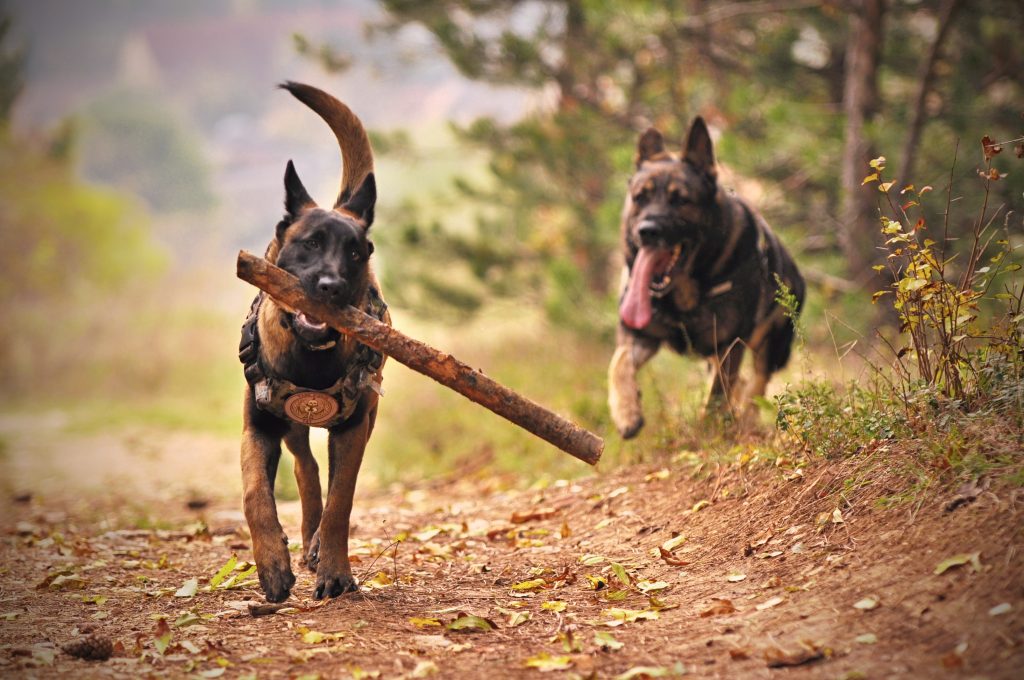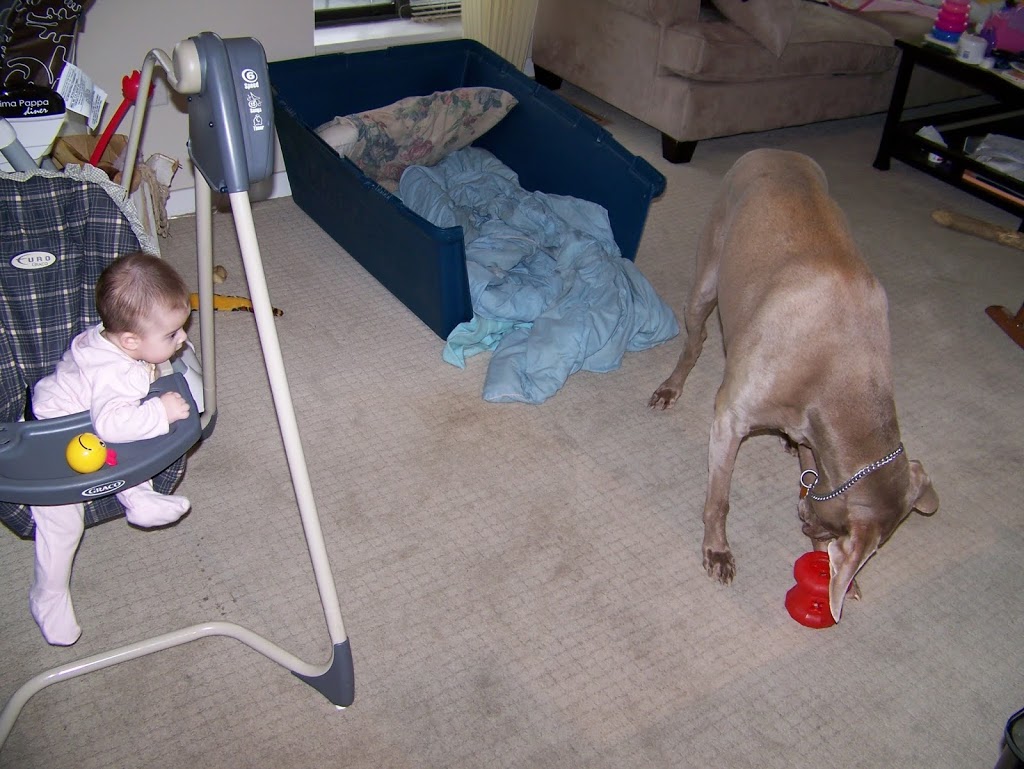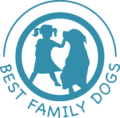
To Understand Jealousy, We Need To Understand Emotions
To Understand that jealousy is a secondary emotion because it is more complex than the primary emotions which are fear, anger, disgust, joy and surprise. Primary emotions are universal and generally shared by all people. Secondary emotions are more complex because they need to develop on a more conscious level. They are subject to individual and cultural social norms, and can be expressed in unique ways. Studies show that dogs feel jealousy too. Let’s explore dog’s emotional response to jealousy.
Stanley Coren, a dog psychologist from the University of British Columbia wrote an article that was featured in the previous issue of the Modern Dog Magazine entitled “Jealousy: Dogs and the Green-Eyed Monster”.
In this article he mentions a scientist named, Friederike Range who conducted some experiments with dogs to evaluate their emotions regarding jealousy.
Do Dogs Feels Jealousy Like Humans?
Research has recently proven that dogs can sense jealousy among other dogs. Through experiments, researchers studied two dogs in each sample that were side-by-side and asked to perform the same trick, with only one dog getting a reward.
The one dog receiving the treat reward perform the trick consistently and until the task was finished. The second dog who did not receive the treat, stopped performing the trick after being aware that the dog right next to him or her was receiving a reward for the same action.
How much of these experimental behaviours are learned through positive feedback, versus true signs of emotional jealousy?
Signs Your Dog Is Jealous
Aggression – Biting, nipping, growling at the animal or person or object that the dog feels threatened by
Incontinence of Urine or Stool – Usually sudden, unexplainable pee-pee or poop accidents in the house, or in areas the dog has been previously trained not to go. The jealous dog may urinate or stool on items associated with what or who is causing your dog to be jealous.
Pushy Behaviour – Your dog may react clingy and want more attention from you. Your dog may interfere with you getting close to who or what is the cause of jealousy. Dogs have been known to get in the middle of hugs, or push out the other animal getting petted by the owner when they feel jealous. It’s common to feel your dog is crowding you when they feel jealous.
Withdrawn – This is a more docile expression of jealousy in some dogs. You might notice your dog is acting indifferent, or leaves the room when the object, person or animal causing the feelings of jealousy is near. This kind of maladaptive behaviour may pass on it’s on as your dog takes time to warm up to the new change. However, if not noticed and corrected gently and early this could lead your dog to feel depression.
What We Do Wrong With Jealous Dogs
Let’s face it – the average person with a dog, is not a professional dog handler. They have a dog for companionship. They have not studied dog behaviour for countless hours, and have not devoted their careers to correcting dogs manners and behavior. That is totally okay, because many non-professional people still come looking for answers and wonder how to improve.
So when a typical person feels that their dog is exhibiting potential signs of jealousy, they may indirectly reinforce the negative behavior. Because when a dog gets more pushy for attention, more clingy, more demanding, as humans with tend to:
- Cuddle the dog
- Speak to the dog in a high-pitched, baby-like voice
- Give the dog more attention than usual
- Allow for more leniency in already-established rules or boundaries
It’s easy to know why we do one or all of these things. We find it reassuring as people. So we assume our dog would find it comforting also. However, behaviorally, these things are not too comforting to the dog, when interpreted by the canine mind.
Why Reassuring Human Behaviour Does Not Work For Dogs
All that cuddling and reassuring voice, although helpful to humans because we can empathize with other human’s social context and actually understand their words.
A dog does not have that social complexity or the ability to decode our language.

How to Manage Dog Jealousy
Think your dog might be showing sings of jealousy? Time to really think about your treatment approach. If you just try to evaluate your dog’s new jealous behaviors as they arise you are not addressing the core issue and not helping you or your dog for long-term adjustment.
You want to try to analyse the situation to the best of your ability. Why do you think your dog is experiencing these feelings? New pet? New partner? New baby? Some situations are not permanent. For example, you are pet sitting for a friend or neighbor. Your dog is jealous of the “new” and different pet that you are temporarily caring for. Your dog won’t understand this is a temporary thing no matter how much you reassure them. They will realize it only in time.
For temporary situations, you want to maintain the current schedule you already have as much as possible. Try not to give too much more affection or reassurance to your dog. Instead of validating their feeling s of jealousy over the change you want them to notice that you are accepting of the new accountability. You are saying with your body language to a dog “I still love you, you matter, but I also have to do these other responsibilities”.
Helping Your Dog Adjust to Permanent Change
If you are facing a big permanent change, you will need to consider your dog’s schedule and how you want to maintain the routine. Try to prepare your dog if you can. And offer a few more extra treats for good behavior, but don’t over do the cuddling.
If you can not maintain the new doses of attention and fuss, and you fizzle out with all the treats, hugs and kisses in 3 days, you will sabotage your plan to facilitate your dog’s coping through this life change.
Make your changes manageable and consistent and still provide affection.
- Prepare your dog if possible – New family pet or baby? Bring home items the pet or baby has used, unwashed and allow your dog to smell the clothing, fabric or other items. Than place the items or clothing in the area the new arrival will “own”, the new pet’s bed, or the new baby’s crib.
- Feed your dog – as much on schedule as before. This helps show consistency and relieves stress and anxiety for your dog, because your dog will know that their survival will be maintained
- Walk your dog – As much on schedule as before. Again, helps with consistency so your dog can adapt through the new changes
- Find time to spend time – with your dog that is reasonable. Don’t over do it. Don’t smoother your dog. Make your new schedule realistic. Show your dog what your expectation is. Give your dog 10 minutes extra a day to relax with you or to play a low-key indoor game. Spending one on one time with your dog shows the dog that you still love him or her and still want to take care of him or her.
- Take care of yourself – Whatever you decide for the schedule, take time for yourself – daily. Don’t burn yourself out. Caring for a new pet or new baby takes lots of your own time. Leaves much less time for yourself. SO you need to make time for yourself to recharge. You can do best caring for others when you have taken care of yourself too!
Building a Solid Pack
When you and your dog experience small and large changes together and adapt through the changes, you make your pack that much stronger. Stay the course and let the challenges become mere memory while you enjoy the present and look forward to many more better times ahead.
Resources
Protective Jealously and Possessive Behavior
